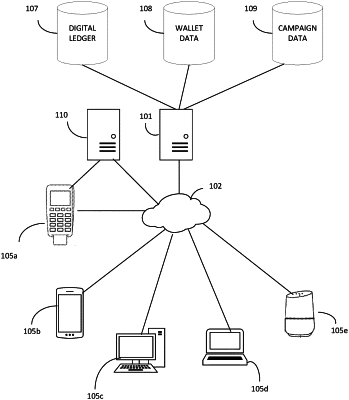| CPC G06Q 20/3678 (2013.01) [G06F 9/54 (2013.01); G06F 16/27 (2019.01); G06Q 20/202 (2013.01); G06Q 20/389 (2013.01); G06Q 20/4037 (2013.01); G06Q 20/405 (2013.01); G06Q 20/381 (2013.01); G06Q 20/3829 (2013.01)] | 24 Claims |

|
1. A system for distributing tokens from multiple issuers to multiple recipients, the system comprising:
a processor and a computer-readable medium containing programming instructions that are configured to instruct the processor to:
detect receipt, from each of a plurality of issuers via an application programming interface, a request to generate a specification for a token class;
in response to each of the requests, generate a record for a class-specific token specification, in which each record comprises:
an identifier that is unique to the class-specific token specification,
a maturity date, and
a parameter that must be satisfied for any user of the system to acquire, from another user of the system, any token that is created according to the class-specific token specification;
save each of the records for the class-specific token specifications to a digital ledger that is accessible to a plurality of users of the system;
for each of the class-specific token specifications, generate a token set comprising one or more tokens that conform to the class-specific token specification;
detect receipt, from a first user, of transfer request to transfer a first token to a second user, wherein the transfer request includes a class of the first token, an amount of the first token, and an identifier for the second user;
in response to the transfer request:
verify that a class-specific token specification exists for the class of the first token by accessing the digital ledger and locating a token specification that corresponds to the class of the first token, and
in response to the verifying, write one or more first ledger entries to the digital ledger, in which the one or more first ledger entries includes one or more records indicating that the amount of the first token has been transferred to the second user.
|